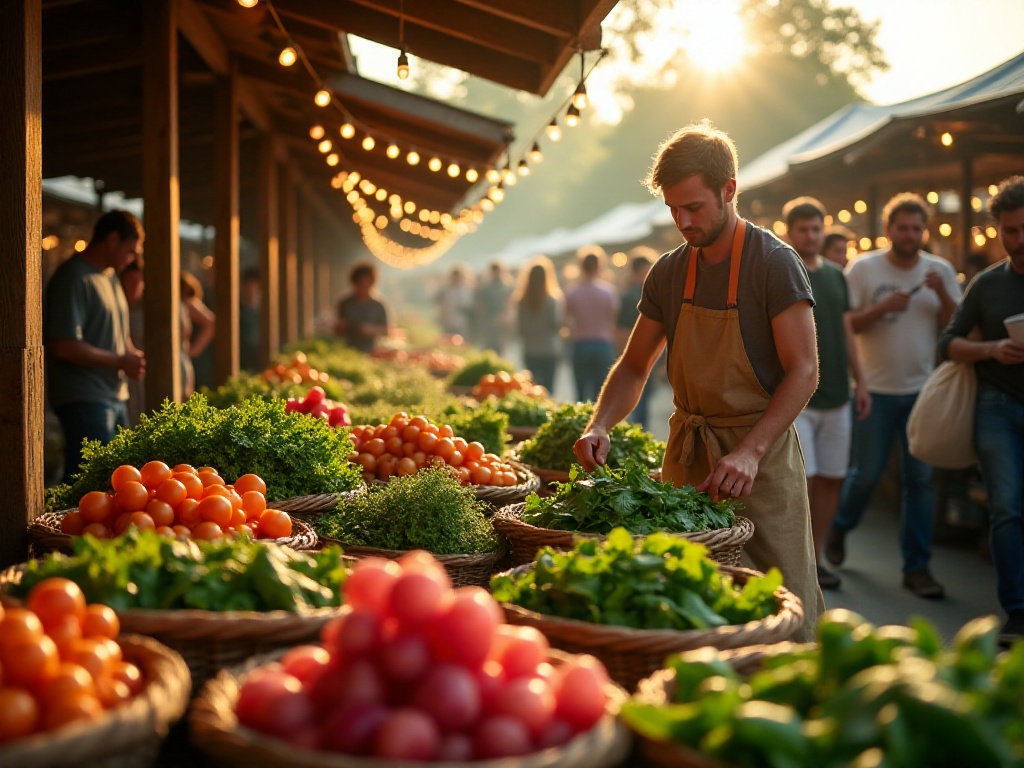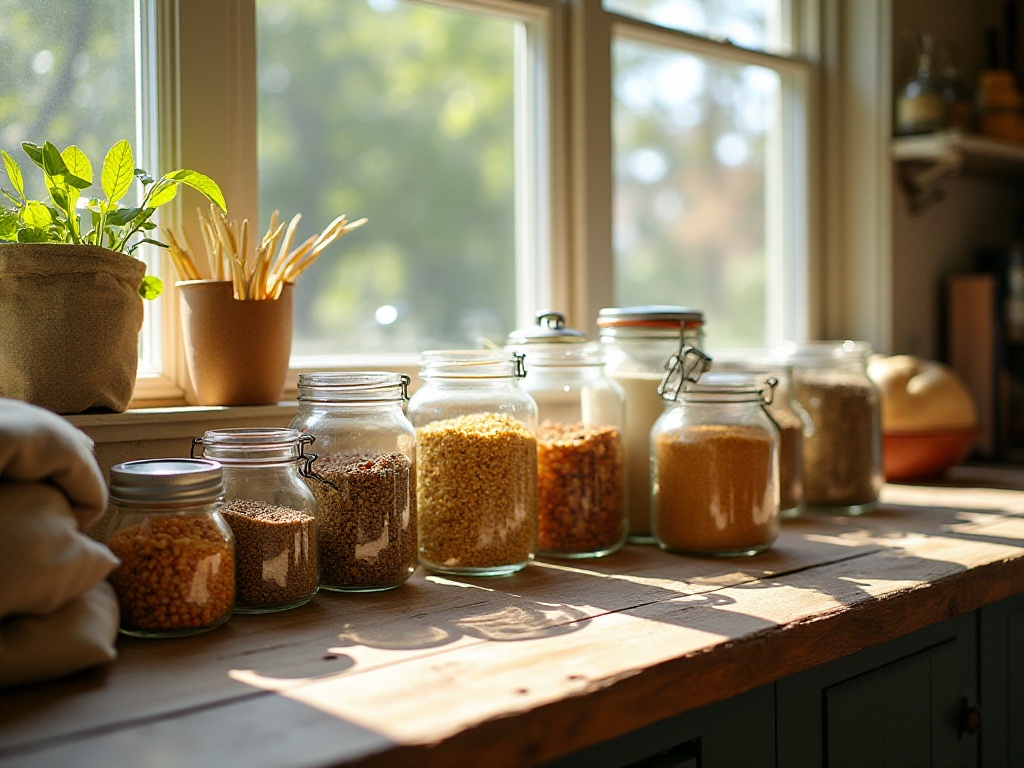As someone born after 1995, I deeply understand the frustration of generating waste in modern life. With daily takeout orders, bubble tea, and online shopping, trash piles up before we know it. Looking at the layers of plastic packaging in the garbage bin always fills me with deep guilt. It wasn't until I started trying zero-waste living that I discovered environmental protection isn't something out of reach - it can actually make life more quality-focused and financially rewarding.
To be honest, when I first started making changes, I found it really troublesome and felt my individual changes were insignificant. But when I actually began practicing it, I gradually discovered this lifestyle isn't just environmentally friendly but also helps me save money and makes life more meaningful. Today I want to share my year-plus experience with zero-waste practices, hoping to inspire those of you who also want to make a change.
When I first tried zero-waste living, the biggest challenge was changing my shopping habits. I used to be comfortable with online shopping and convenience stores, where buying anything was just a tap on my phone away. But later I realized this shopping style generated too much unnecessary packaging waste.
So I started trying supermarkets with bulk sections. At first, it felt really awkward carrying glass jars and cloth bags for shopping. But after a few times, I discovered this shopping method is actually very economical.
Take rice for example - I used to buy 5kg vacuum-sealed packages that cost over 50 yuan each. Later I found bulk rice at the supermarket was only 40-something yuan per bag, and I could bring my own container and buy exactly what I needed. For the same price, bulk rice quality isn't any worse, and it's actually fresher due to faster turnover.
Condiments are the same - I used to buy those small bottled ones, use them up and throw them away, which was both expensive and not eco-friendly. Now I bring empty glass bottles to refill at bulk sections. Items like soy sauce and vinegar are about one-third cheaper in bulk. Over a year, I save several hundred yuan just on condiments.
Fruit and vegetable shopping also requires some know-how. Many supermarkets now like to wrap produce tightly in plastic wrap to make them look neater. But this packaging is completely unnecessary and actually accelerates spoilage. I now bring mesh bags to buy loose fruits and vegetables, which are fresher, more eco-friendly, and cheaper.
Another important change is that I've become more rational about promotional activities. I used to buy extra whenever there were discounts, but things often went moldy before I could use them. Now I buy based on actual needs - I'd rather make multiple trips to the supermarket than waste things due to impulse purchases.

When it comes to reusable items, the most basic is a water bottle. Statistics show that an average person uses 167 plastic bottles annually - a shocking number. I now carry a stainless steel thermos, filling it with water before leaving home, which lasts all day. This thermos has been used for over two years and still looks new - thinking about it, it's saved me from using over 300 plastic bottles.
Cosmetics and personal care product packaging is also a big issue. I switched from liquid body wash to handmade soap, which not only eliminates plastic packaging but is also gentler on skin. One bar of handmade soap lasts over a month and costs about 20 yuan, much cheaper than body wash that costs fifty or sixty yuan.
Replacing cotton pads was also an interesting discovery. I used to use several disposable cotton pads daily, but switched to washable ones that can just be thrown in the washing machine. A set of washable cotton pads costs about 30 yuan and lasts over a year - more economical and eco-friendly than disposable ones.
Toothbrushes are another important replacement item. Regular plastic toothbrushes need replacing every three months, creating four pieces of plastic waste yearly. I switched to bamboo toothbrushes - while the bristles are still plastic, the handle is biodegradable bamboo, having much less environmental impact.
When shopping, I carry canvas bags and reusable mesh bags. These bags have been used for over a year and stay clean with regular washing. In contrast, single-use plastic bags are wasteful and polluting.

The kitchen can be the biggest source of household waste, but it's also the easiest place to achieve zero waste. Statistics show about 30% of food in average households ends up in the garbage - a heartbreaking number.
To avoid food waste, I now plan weekly menus in advance. On weekends, I sit down to plan what dishes to make that week, what ingredients I need, and make a shopping list before going to the supermarket. This prevents impulse buying and ensures all ingredients get used.
I've also developed a habit of tracking expiration dates. I mark purchase dates on ingredients with markers and regularly check food in the refrigerator to prevent spoilage from forgetting about items. For easily perishable ingredients like vegetables, I place them in visible spots as reminders to use them first.
Handling leftovers is also important. I used to throw away leftovers thinking they weren't fresh, but now I've learned to transform them. Leftover rice becomes fried rice, leftover vegetables become filling for pancakes, and leftover bread becomes bread pudding. After cooking again, these leftovers aren't wasted but become new dishes.
I grow several herb plants on my balcony - basil, mint, rosemary. These herbs are easy to maintain, needing only sunlight and appropriate water. Whenever I need herbs for cooking, I just cut some fresh leaves - much fresher than packaged herbs from supermarkets. Plus these plants purify the air, making the balcony more vibrant.
Kitchen waste handling is also key. I drain organic waste like fruit peels and vegetable leaves, mix them with dry leaves, and make compost. While this process needs time and patience, seeing this waste become plant nutrients feels very rewarding.

Zero-waste living sounds idealistic, but you don't need to achieve everything at once. I started simply by carrying a water bottle. I often forgot at first, but it became habit after persisting for a while. Now I feel uncomfortable leaving home without my water bottle.
Next, I started bringing shopping bags. Initially, I'd often realize at checkout that my shopping bag was still at home and had to awkwardly buy plastic bags. But I prepared several foldable shopping bags in my purse, office, and home, so I wouldn't forget.
As these small habits formed, I started trying more eco-friendly behaviors. Like bringing my own containers for takeout, using glass jars instead of plastic wrap to store food, buying second-hand items, etc. These changes were gradual and didn't bring much inconvenience to life.
Data shows if everyone reduced creating one plastic bag of waste daily, the country would produce 520 billion fewer plastic bags annually. This number made me realize that small changes from each person can accumulate into huge impact.
During this process, I've noticed more people around me starting to care about environmental protection. Some friends saw me carrying thermos and shopping bags and started following suit. Sometimes when I share zero-waste tips on social media, I always receive many positive responses. This spread of influence makes me feel my efforts are meaningful.

After over a year of practice, I deeply feel that zero-waste living isn't about living an ascetic life, but finding an environmentally friendly lifestyle that suits yourself. It not only makes our lives more quality-focused but also helps us save money.
Most importantly, through this lifestyle, each of us can contribute to environmental protection. Though individual power seems small, when more people join in, these small changes will gather into a force that changes the world.
If you want to start zero-waste living, try beginning with one simple change. It could be carrying a water bottle or bringing shopping bags - choose the easiest entry point. Believe that as time passes, you'll also discover the beauty of zero-waste living.
After all, Earth is our shared home, and zero-waste living can take many forms. Everyone can find their suitable way to contribute to environmental protection. Let's act together and protect our Earth through these small changes.
 Previous
Previous
